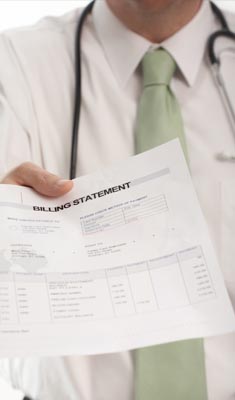A quarter of U.S. hospitals fail to meet the policy


Arundi Venkayya
Curator of EngagingPatients.org
A recent report by the Leapfrog Group says that 25% of U.S. hospitals fail to meet their “Never Events” policy.
Never events are “serious reportable events that should never happen.” They are always preventable and always harmful to patients, Leapfrog says.
The National Quality Forum has defined 29 events as serious patient-safety errors that are preventable and unacceptable. They fall into seven categories: surgical or invasive procedure events, product or device events, patient protection events, care management events, environmental events, radiologic events and potentially criminal events.
Examples include:
- Wrong site or wrong patient surgery or invasive procedure
- Wrong surgery or invasive procedure on a patient
- Forgotten foreign object after a surgery or invasive procedure
- Patient death or serious injury as a result of contaminated drugs, devices or biologics, or from a medical device being used other than intended or an intravascular air embolism that occurs while being treated in a healthcare setting
- Discharge or release of patient/resident of any age who is unable to make decisions to someone other than an authorized person
- Patient death or serious injury related to a patient disappearance or patient suicide; attempted suicide or self-harm that results in serious injury while being care for in a healthcare setting
- Patient death or serious injury related to a medication error, including wrong drug, dose, patient, time, rate, preparation or route of administration
- Maternal or neonate death or serious injury associated with labor or delivery in a low-risk pregnancy
- Fall-related death or serious injury while being cared for in a healthcare facility
- Death or serious injury related to the irretrievable loss of an irreplaceable biological specimen
- Electric shock, gas- or burn-related death or serious injury in the course of a patient care process
- Death or serious injury of a patient or staff associated with the introduction of a metallic object into the MRI area
In 2007, Leapfrog introduced five standards for hospitals to follow if a never event happened in their facility. By 2014, the number of hospitals complying had risen to about 80%.
The original five standards:
- Apologize to the patient
- Report the event
- Perform a root cause analysis
- Waive costs directly related to the event
- Provide a copy of the hospital’s policy on never events to patients and payors
Spurred by new research and experience, Leapfrog added four additional standards to the list in 2017:
- Involve patients and families in the root cause analysis when they are willing and able to participate
- Inform the patient and family of the actions that the hospital will take to prevent future recurrences based on the findings from the root cause analysis
- Provide support for caregivers involved in never events and communicate that protocol to all caregivers and affiliated clinicians
- Perform an annual review to ensure compliance for each never event that occurred
Since 2018 when the new standards were added, the number of compliant hospitals has fallen, particularly in rural and non-teaching hospitals.
What can be done to encourage compliance? It would be impossible to address the list of never events as a whole. Rather, focusing on each category can help prevent these events. For example:
- For surgical or invasive procedure events, ensuring a positive patient identification process and implementing an informed consent process will help mitigate potential wrong site, wrong patient and wrong procedure risks.
- For care management events related to medication errors, crisp and clear labeling of medications and gases will help prevent medication and dosing issues.
- A fall prevention program like the one created by Memorial Rehabilitation Institute, a 2018 Sherman Award for Excellence in Patient Engagement winner, can help reduce fall risks.
- Leapfrog also says that increased transparency will encourage more hospitals to implement the never event standards. Patients should have the opportunity to know whether their hospital has had a never event before receiving care.i



